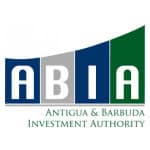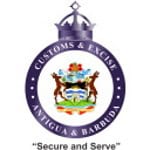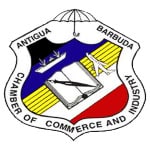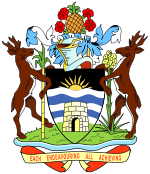- Type of Government: Constitutional monarchy with a parliamentary system
- Population: Approximately 100,000
- GDP: Around $1.7 billion USD
- Corporate Tax Rate: 25%
- Personal Income Tax Rate: No personal income tax
- Major Exports: Petroleum products, machinery, transport equipment
- Major Imports: Food and live animals, machinery, manufactured goods
Doing Business with Antigua and Barbuda
A comprehensive guide to doing business, exporting, investing, and manufacturing in Antigua and Barbuda.
-
Market Research
- Identify demand for your products in Antigua and Barbuda.
- Research competitors and local regulations.
-
Documentation Preparation
- Obtain necessary export licenses from your country.
- Prepare commercial invoices, packing lists, and certificates of origin.
-
Product Compliance
- Ensure products meet Antigua and Barbuda’s standards and regulations.
- Check if any specific labeling is required.
-
Select a Freight Forwarder
- Choose a reliable freight forwarder to handle logistics.
- Ensure they have experience with Caribbean shipments.
-
Customs Declaration
- Submit a customs declaration through Antigua and Barbuda’s Electronic Single Window (ESW) system.
-
Shipping and Insurance
- Arrange shipping and consider insurance for your goods.
- Track the shipment to ensure timely delivery.
-
Customs Clearance
- Work with the customs broker to clear goods upon arrival.
- Pay any required duties or taxes.
-
Delivery
- Arrange for delivery from the port to the final destination.
Key Contacts
- Antigua and Barbuda Customs Department
- Website: Customs Department
- Antigua and Barbuda Investment Authority
- Website: Investment Authority
- Chamber of Commerce and Industry
- Website: Chamber of Commerce
Importing goods into Antigua and Barbuda requires careful planning and adherence to regulations. Here’s a step-by-step guide:
-
Research and Planning
- Identify demand for the products you wish to import.
- Understand local regulations and tariffs.
-
Obtain Necessary Licenses
- Check if any specific import licenses are required for your products.
- Apply through the relevant government agencies.
-
Supplier Selection
- Choose a reliable supplier.
- Ensure they provide all necessary documentation, such as invoices and certificates of origin.
-
Prepare Documentation
- Gather required documents: commercial invoice, bill of lading, and packing list.
- Ensure accuracy to avoid delays.
-
Arrange Shipping
- Select a freight forwarder experienced with Caribbean imports.
- Decide on shipping terms and insurance coverage.
-
Customs Clearance
- Submit the customs declaration via the Electronic Single Window (ESW) system.
- Work with a customs broker if necessary.
-
Pay Duties and Taxes
- Calculate and pay any applicable import duties and taxes.
- Use the customs department’s resources for accurate assessment.
-
Receive Goods
- Ensure goods are inspected upon arrival.
- Arrange for transportation from the port to your location.
Key Contacts
- Antigua and Barbuda Customs Department
- Website: Customs Department
- Ministry of Trade, Commerce, and Industry
- Website: Ministry of Trade
- Chamber of Commerce and Industry
- Website: Chamber of Commerce
Incorporating a company in Antigua and Barbuda involves several steps. Here’s a detailed guide:
-
Choose a Business Structure
- Decide on the type: Sole Proprietorship, Partnership, or Corporation.
-
Reserve a Company Name
- Check name availability with the Companies Registry.
- Reserve the name for a fee.
-
Prepare Incorporation Documents
- Draft the Articles of Incorporation.
- Prepare the Memorandum and Articles of Association.
-
Submit Application
- Submit the incorporation documents to the Companies Registry.
- Include identification and proof of address for directors and shareholders.
-
Pay Incorporation Fees
- Pay the required fees (approximately $1,000 USD, but this can vary).
- Register for Taxes
- Obtain a Taxpayer Identification Number (TIN).
- Register for VAT if applicable.
-
Open a Bank Account
- Open a corporate bank account in Antigua and Barbuda.
-
Obtain Necessary Permits
- Apply for any required business licenses or permits.
Costs
- Name Reservation Fee: Varies
- Incorporation Fee: Approximately $1,000 USD
- Additional Fees: Depends on business type and other factors
Key Contacts
- Antigua and Barbuda Intellectual Property and Commerce Office (ABIPCO)
- Website: ABIPCO
- Inland Revenue Department
- Website: Inland Revenue
- Antigua and Barbuda Investment Authority
- Website: Investment Authority
Setting up a manufacturing plant involves several key steps. Here’s a guide to help you through the process:
-
Conduct Feasibility Study
- Assess market demand and location suitability.
- Evaluate costs and logistics.
-
Choose a Location
- Select an appropriate site with access to necessary infrastructure.
- Consider proximity to suppliers and distribution channels.
-
Register Your Business
- Incorporate your company through the Companies Registry.
- Obtain necessary licenses and permits.
-
Secure Financing
- Explore financing options such as loans or investment.
- Prepare a detailed business plan for potential investors.
-
Obtain Necessary Permits
- Apply for environmental and zoning permits.
- Ensure compliance with health and safety regulations.
-
Design the Facility
- Hire architects and engineers to design the plant layout.
- Plan for efficient production flow and scalability.
-
Construct the Plant
- Select a construction company with experience in industrial projects.
- Monitor the construction process to ensure quality and adherence to timelines.
-
Install Equipment
- Purchase and install machinery and equipment.
- Ensure all equipment meets safety and operational standards.
-
Hire and Train Staff
- Recruit skilled labor and management.
- Provide necessary training for operational efficiency.
-
Start Operations
- Conduct trial runs and quality checks.
- Begin full-scale production once everything is operational.
Key Contacts
- Antigua and Barbuda Investment Authority
- Website: Investment Authority
- Ministry of Trade, Commerce, and Industry
- Website: Ministry of Trade
- Environmental Division
- Website: Environmental Division
Registering a trademark involves several key steps. Here’s a detailed guide:
-
Conduct a Trademark Search
- Check the availability of your trademark.
- Use the Intellectual Property and Commerce Office’s resources to avoid conflicts.
-
Prepare Application
- Gather necessary information: trademark representation, class of goods/services, and applicant details.
- Ensure accuracy to prevent delays.
-
Submit Application
- File your application with the Antigua and Barbuda Intellectual Property and Commerce Office (ABIPCO).
- Include all required documents.
-
Pay Fees
- Pay the application fee (approximately $300 USD, but this can vary).
- Additional fees may apply depending on the number of classes.
-
Examination Process
- Wait for the examination of your application by the trademark office.
- Respond to any queries or objections raised.
-
Publication
- If approved, the trademark is published for opposition.
- Wait for a specified period to see if any oppositions are filed.
-
Registration
- If there are no oppositions, receive your trademark registration certificate.
- Your trademark is now legally protected.
Costs
- Application Fee: Approximately $300 USD
- Additional Class Fees: Varies
- Renewal Fees: Applicable after the initial registration period
Key Contacts
- Antigua and Barbuda Intellectual Property and Commerce Office (ABIPCO)
- Website: ABIPCO
Here’s a guide to navigating commercial dispute resolution:
-
Attempt Negotiation
- Engage in direct negotiations with the other party.
- Aim to reach a mutually acceptable solution.
-
Mediation
- Consider mediation as a cost-effective alternative.
- Use a neutral third party to facilitate discussions.
-
Arbitration
- If mediation fails, opt for arbitration.
- Ensure both parties agree to be bound by the arbitrator’s decision.
-
Litigation
- File a lawsuit in the Commercial Court if arbitration is unsuccessful.
- Prepare all necessary documentation and evidence.
-
Court Proceedings
- Attend court hearings and follow legal procedures.
- Comply with court rulings and orders.
-
Enforcement
- Implement the court’s decision.
- Use legal mechanisms to enforce judgments if necessary.
Costs
- Mediation/Arbitration Fees: Vary based on the complexity and duration
- Legal Fees: Depend on the law firm and case specifics
- Court Fees: Applicable if proceeding to litigation
Key Contacts
- Ministry of Legal Affairs
- Website: Ministry of Legal Affairs
- Eastern Caribbean Supreme Court
- Website: Eastern Caribbean Supreme Court
- Antigua and Barbuda Chamber of Commerce
- Website: Chamber of Commerce
When considering doing business in Antigua and Barbuda, it’s important to understand various factors that can impact your operations.
Social and Cultural Factors
- Language: English is the official language, facilitating communication for international businesses.
- Business Etiquette: Personal relationships and trust are vital. Networking and face-to-face meetings can be important.
- Cultural Norms: Respect local customs and traditions, as they play a significant role in business interactions.
Political Environment
- Stability: The country enjoys a stable political environment, with a democratic government structure.
- Government Support: There are incentives for foreign investors, particularly in tourism and manufacturing.
Economic Factors
- Foreign Exchange: The currency is the Eastern Caribbean Dollar (XCD), pegged to the US Dollar, providing exchange rate stability.
- Market Size: While small, the economy is open and offers access to the CARICOM market.
Legal and Regulatory Environment
- Rule of Law: Strong legal framework with protections for property rights and contracts.
- Business Regulations: Transparent processes for business registration and operation, but it’s advisable to consult local legal experts.
Infrastructure
- Connectivity: Well-developed infrastructure with international airports and seaports.
- Technology: Growing investment in ICT, improving digital business opportunities.
Key Contacts
- Antigua and Barbuda Investment Authority
- Website: Investment Authority
- Ministry of Tourism, Economic Development, Investment and Energy
- Website: Ministry of Tourism
- Eastern Caribbean Central Bank
- Website: ECCB
Our Members Include Leading Organizations in Antigua and Barbuda
Ask our Experts on Doing Business in/with Antigua and Barbuda
If you’re looking to do business or invest in Antigua and Barbuda, we can provide expert guidance, market insights, and valuable connections to help you navigate the local landscape. Contact us today to discover how we can assist in making your venture a success.




